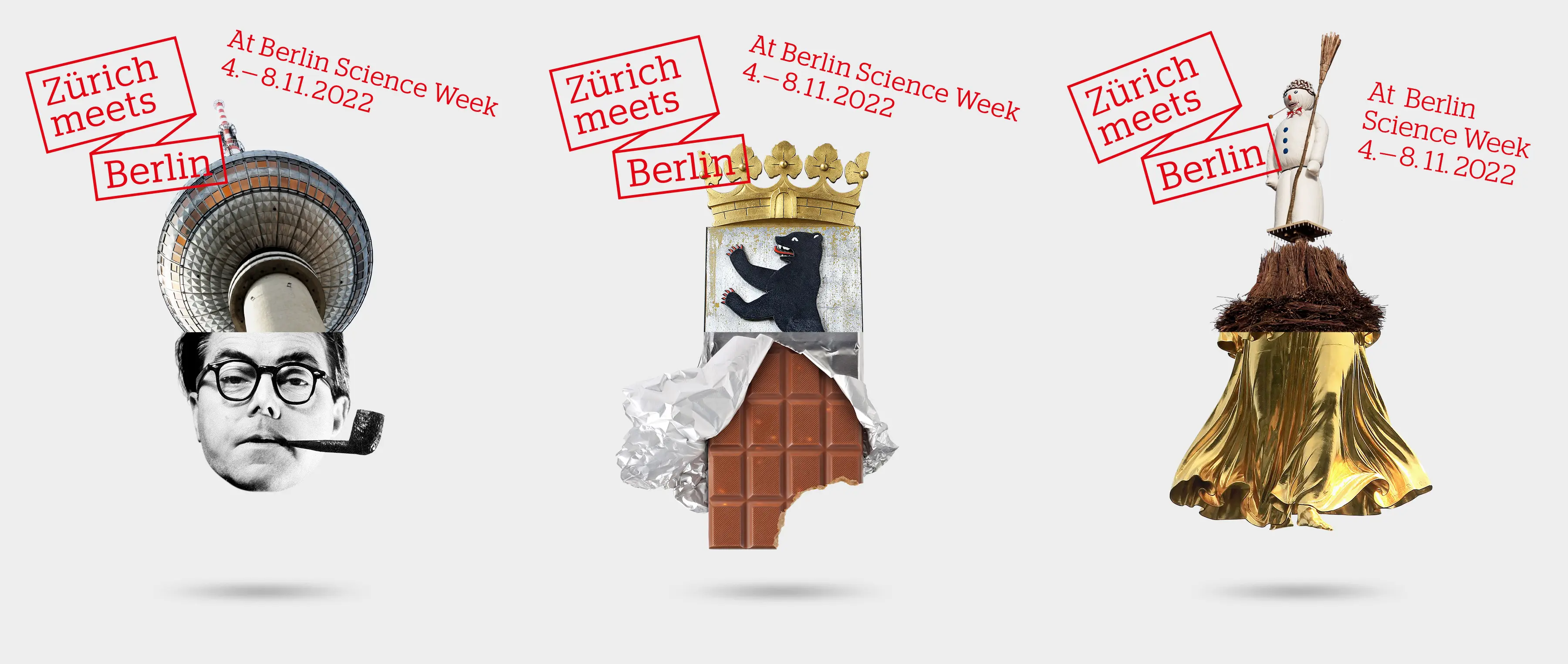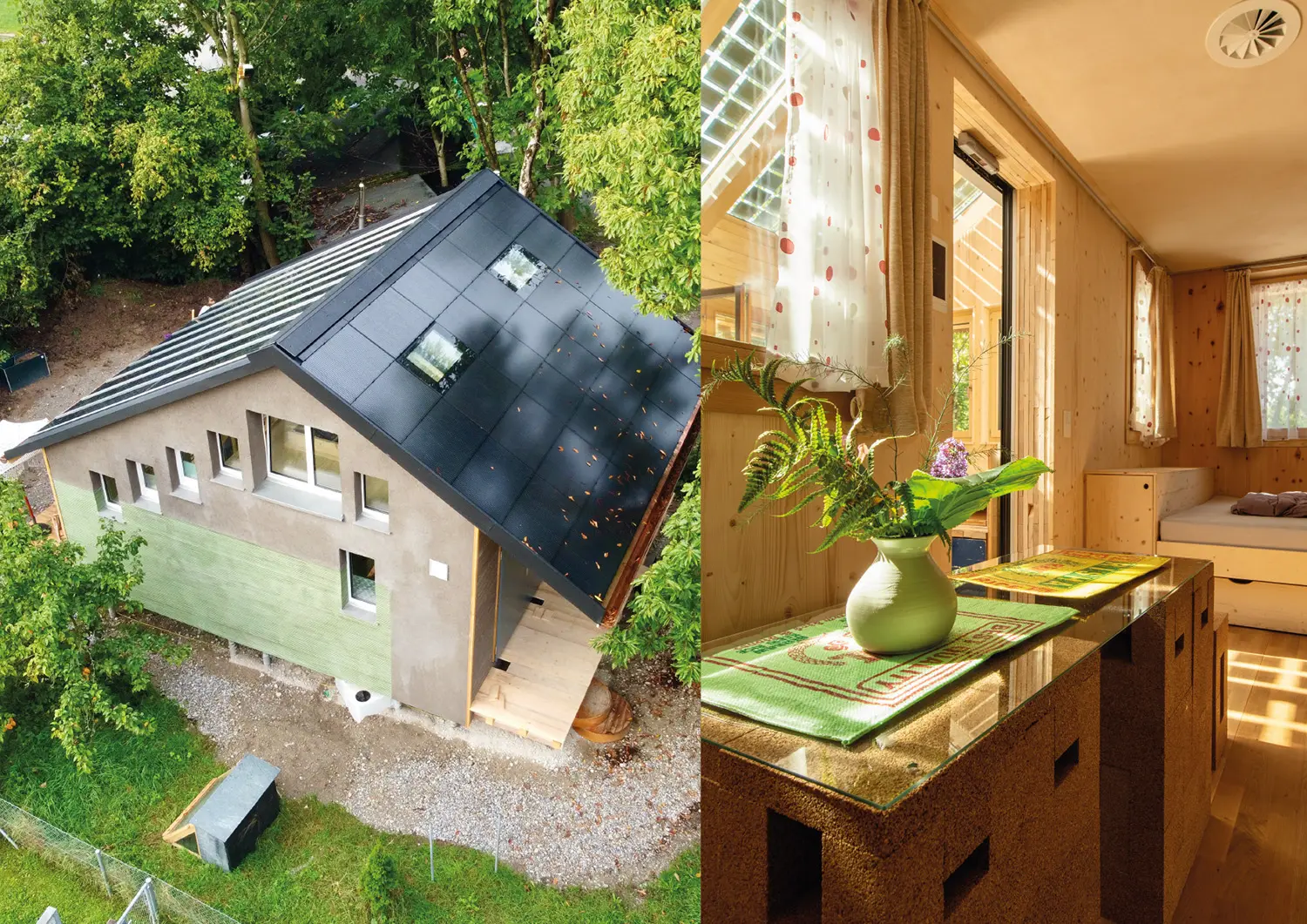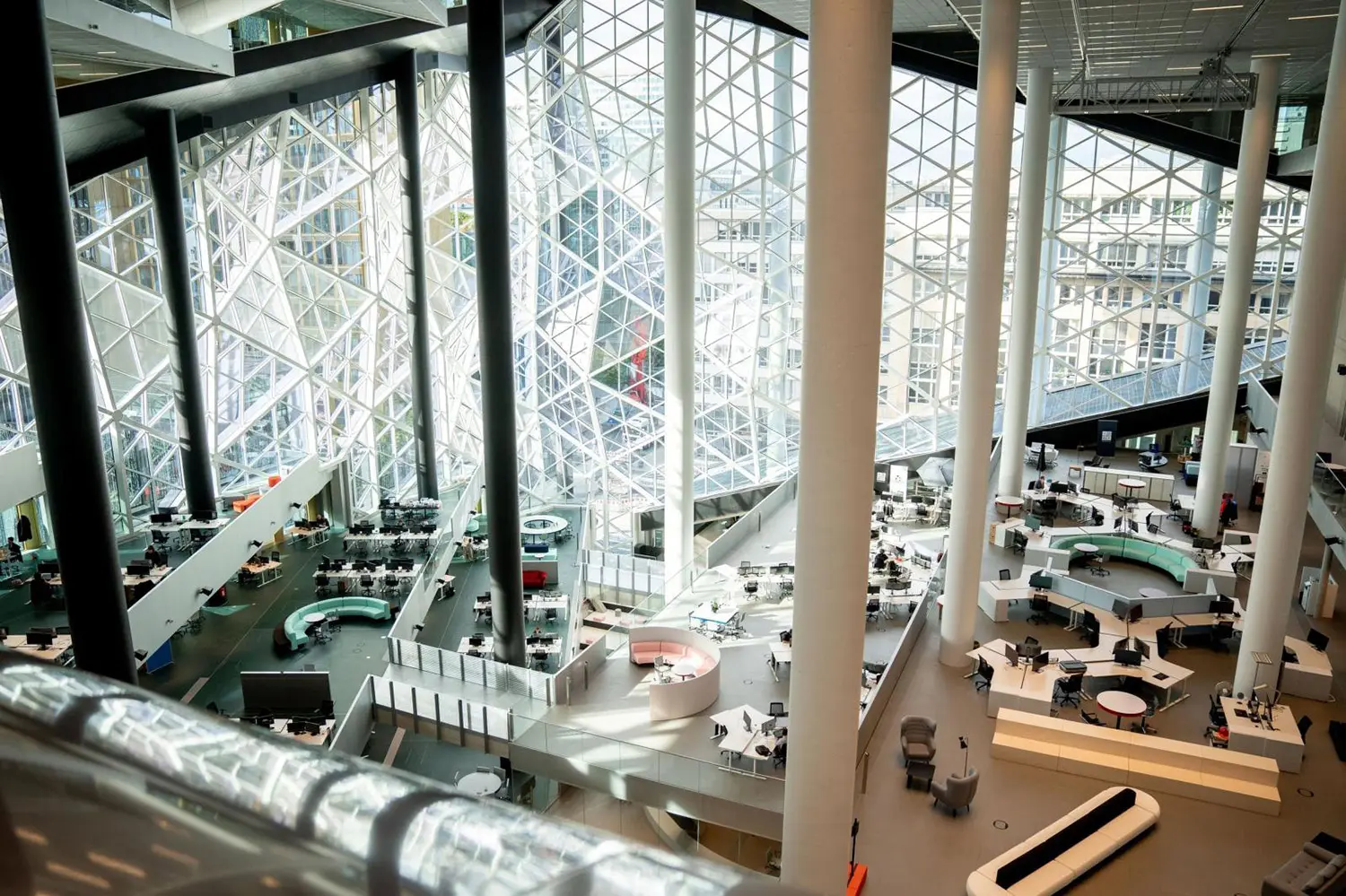ZHAW at the “Zurich meets Berlin” festival
At this year’s international “Zürich meets Berlin” festival being held between 4 and 8 November 2022, the ZHAW will present an interactive exhibit on planetary health and regenerative food and hold various events on the topics of sustainability, sustainable society and regenerative approaches.

“Zürich meets Berlin” will take place during the Berlin Science Week and is being organised jointly by the City and Canton of Zurich and Zürich Tourism together with Zurich’s higher education institutions. As the sixth edition of a global series, the festival will once again link Zurich with an inspiring metropolis and bring to life the appeal of Zurich as a location and partner for science, education, innovation and culture. At the same time, it will provide the opportunity for exchanges with the Berlin public, local partners and representatives from the realms of business, politics, education, research and culture.
Regenerative – the new sustainable
The overarching theme of the Berlin Science Week Campus is set to be “Paradigm Shift. Co-Creating a Sustainable Now!” Against this backdrop, the ZHAW will be represented with a variety of projects in the area of sustainability and present the focus topic of “Regenerative – the new sustainable” in cooperation with the ZHAW entrepreneurship and digital initiatives as well as the ZHAW sustainable programme. Through an interactive exhibit at the Museum für Naturkunde Berlin, ZHAW researchers will have the opportunity to enter into exchanges with stakeholders from the worlds of business, politics and research as well as with visitors. They will discuss questions such as “What issues are we concerned with in connection with this highly topical issue? What will our future diet look like? What are we worried about and where do we see opportunities?” With five pillars– developed by the Berlin artist Maximilian Kleinau – the ZHAW will address the perspectives of technology, collaboration and co-creation, emotions and forward-looking education approaches in connection with planetary health and regenerative food. The exhibition will also shine a spotlight on the opportunities for cooperation between the Future of Food Campus in Wädenswil and the Food Campus Berlin.
People who are unable to attend in-person in Berlin are also invited to submit questions and join in the discussion on a digital basis via a chat stream.
Sustainability, sustainable society and regenerative approaches
TheGreefa
Greenhouse farming and energy-intensive water recovery systems need new innovative applications to reduce their energy consumption. TheGreefa project introduces new technologies aimed at reducing the overall energy consumption of greenhouses, while at the same time maximising the share of renewable energy used for cooling, heating, humidity control and water recovery.
TheGreefa: exhibition at Zürich meets Berlin
Regenerative food production
In addition to factors such as food's sensory and nutritional suitability and its appropriateness for specific occasions, the impact of production methods on planetary health as an overall system is becoming increasingly important for the acceptance of food. Approaches that lead to regenerative production and consumption processes are taking on ever greater significance.
The future of the circular economy within our own four walls
In a circular economy, there is no waste, but rather only resources that are either reused or recycled within the cycle. A presentation will show how the principles of the circular economy have been implemented in the inhabited “KREIS-Haus” practical laboratory and what initial findings have been gleaned.
The future of the circular economy: event at Zürich meets Berlin
The future of food – foodtech innovations meet holistic sustainability
The impact of food and the strain it places on our planet’s limits is becoming increasingly clear: Food is responsible for around 30 percent of greenhouse gas emissions. The Food Campus Berlin enters into dialogues with start-ups, the industrial sector and the world of science on one of the biggest issues faced by the food sector: How can our food system be made regenerative?
A confessional box for our environmental sins
Driving to training or eating a whole bar of chocolate out of frustration. Small environmental sins can happen quickly and we are often not even aware of the impact our daily activities have – be they positive or negative. This event will discuss the power and responsibility of citizens as regards sustainable development and explain the role of “life-cycle thinking” for science and consumers.
Event at Zürich meets Berlin
A confessional box for our environmental sins
Thermochemical networks
A thermochemical network is an energy supply system that is particularly suitable for applications in the low-temperature range (heating, cooling and air-conditioning processes as well as industrial drying processes). In contrast to thermal heat distribution networks, it is not heat energy that is transported, but rather chemical potential in the form of a concentrated electrolyte solution, which allows for useful heat or cold to be produced when and where is it needed and for moisture to be extracted from the air. During Zurich meets Berlin, the various applications, including systems for greenhouse air conditioning, the drying of herbs and room air conditioning, will be presented.
Sustainable smart cities
Trends such as digitisation and the transformation of cities through urbanisation are posing new challenges. Sustainable smart cities aim to address these challenges in an interdisciplinary fashion by adopting a holistic development approach, networking with partners, utilising support from digital technology, and making use of social and technological innovations in order to further promote sustainable urban development. As part of a workshop, keynote presentations will give an introduction to the topic in order to provide a platform for the exchange of experiences and best practices.
Facility management: study excursion to the Axel Springer media house
“A media house as a powerhouse of creativity”: Working in collaboration with the Berliner Hochschule für Technik (BHT), the ZHAW Institute of Facility Management (IFM) will offer an excursion that will provide the opportunity to visit the new Axel Springer building and exchange ideas and views with experts on site.
Study excursion to the Axel Springer media house at Zürich meets Berlin
Digitisation of the public sector in Europe
The digital transformation represents one of the most important innovations at a local government level and is expected to fundamentally reshape the provision of local services, public administration and governance in Europe. Professors from the ZHAW School of Management and Law, the University of Potsdam, the Vienna University of Economics and Business and officials from Switzerland and Germany will highlight where the benefits of digitisation in the public sector lie, how far this process of digitisation has progressed and where the major challenges exist.
Sustainability requirements for companies – regulatory developments and trends
Economic, environmental and social sustainability is increasingly expected of companies. In this context, measures to reduce greenhouse gas emissions and ensure respect for human rights as part of international business are increasingly moving away from the realm of voluntary activities and becoming legally binding requirements. A number of these regulatory developments and trends will be presented and debated during the panel discussion. At the same time, the noticeable move towards enshrining such sustainability measures in applicable legislation is developing into an interesting professional field for commercial lawyers.
Panel discussion at the Berlin School of Economics and Law (HWR) as part of Zurich meets Berlin
ZHAW units involved
Various ZHAW units will be involved in Berlin:
- ZHAW School of Life Sciences and Facility Management
- ZHAW School of Applied Psychology
- ZHAW School of Engineering
- ZHAW School of Management and Law
- ZHAW entrepreneurship
- ZHAW digital
- ZHAW sustainable
- ZHAW International Affairs

